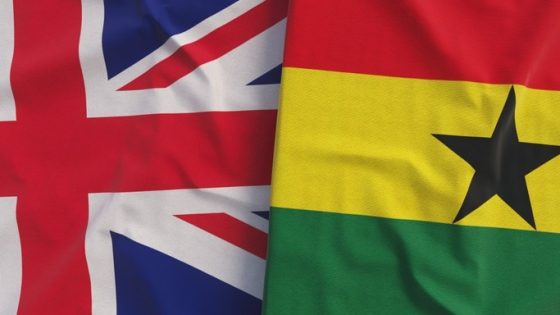Concerns have been raised over claims that nurses from red-listed Ghana are to be recruited to the UK in exchange for £1,000 for their native health system.
Ghana’s health minister Kwaku Agyemang-Manu announced in a parliamentary meeting earlier this week that he had been “engaging” with the UK Government and was soon set to sign a nurse recruitment agreement.
“Ghana is going to benefit from some little money that the UK Government will pass on”
Kwaku Agyemang-Manu
Nurses would come to the UK for training and then work for three years before returning to Ghana, he claimed.
“Out of these nurses, Ghana is going to benefit from some little money that the UK Government will pass on,” Mr Agyemang-Manu said during a Parliament of Ghana meeting on Monday.
“For every single nurse that goes away, when we agree the agreement, it is likely we will get over £1,000 to come and support the health system in Ghana.”
It is understood that the UK Government has had initial discussions with the government of Ghana about a healthcare worker migration scheme, but discussions are not yet concluded, and no agreement has been signed.
Ghana is currently on the World Health Organization’s (WHO) red list – which means active recruitment of health workers from that country by other nations is forbidden.
However, if a government-to-government agreement is signed with a red-listed country, it is moved to the amber country list where recruitment is restricted solely to the terms of such a deal.
But chief executive of the International Council of Nurses (ICN), Howard Catton, told Nursing Times that such agreements were “effectively a loophole in the global code that allows richer countries to recruit from red list countries”.
“Ghana is a red list country for good reason because it is recognised by WHO to have a lower density of nurses”
Howard Catton
“Ghana is a red list country for good reason because it is recognised by WHO to have a lower density of nurses and that restricts its ability to provide access to healthcare,” he said.
“It has a weaker health system than the UK and about 44,000 registered nurses for a population approximately half the size of the UK.” In comparison, there are currently around 716,060 nurses registered in the UK.
In addition, Mr Catton warned that potentially paying around £1,000 per nurse was “woefully short of the true value of these nurses”.
The national nursing association in Ghana had told him that “these nurses have on average seven/eight years’ experience” and so he believed the “true cost of these nurses runs into tens of thousands of pounds and possibly more”.
Mr Catton added: “The UK has made a choice to not train enough nurses to meet its own needs for a number of years and following Brexit has returned to recruiting from Commonwealth and lower income countries.
“Nursing is a global profession and shortages inevitably mean that international and trade agreements will increase, however for them to be fair, ethical and not exploitative they must recognise the true economic costs of nurse’s education, experience and contribution or lost contribution to a country’s healthcare system.”
The news follows latest data from the Nursing and Midwifery Council which revealed the number of internationally trained nursing staff in the UK is increasing rapidly, with overseas nurses accounting for nearly half those who registered for the first time in the last six months.
Howard Catton
The data, published last week, found that Ghana and Nigeria remained in the top 10 countries providing nursing staff to the UK, despite being on the WHO red list.
The UK Government also came under fire earlier this year for its controversial nurse recruitment agreement with Nepal – which had also been on the red list.
A spokesperson at the Department of Health and Social Care said: “We’re supporting and growing the workforce at home through significant progress in training and recruiting staff, as well as recruiting internationally, which means there are record numbers of nurses and doctors working in the NHS in England.
“The WHO acknowledges the right for countries to allow managed migration from red list countries if there is an agreement in place between governments.
“We are committed to ensuring ethical recruitment practices through adherence to the UK’s Code of Practice, which is in line with WHO guidance.”







